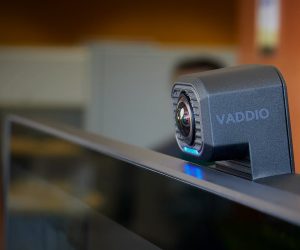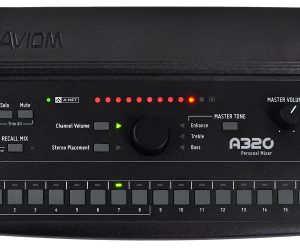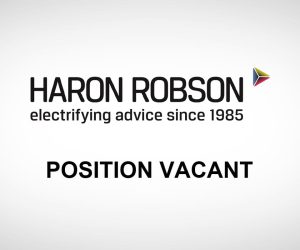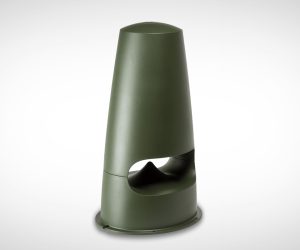
Customising Your Staff
Can’t find the training scheme you need? Why not roll your own?
Text:/ Graeme Hague
What do you want to be when you grow up? A highly–paid jet pilot? No problem, just join the air force and defect to Qantas when you get your flying badge. An architect? Easy, go to university for a few years and scribble a bunch of polygons. An AV technician? Piece of cake, just go to… hmm. Hang on a second, where do you go? While you’re thinking about that try defining the AV industry, too. Tricky? At best, it’s a conglomerate grown from a mix of design, professional audio, lighting, communications, electrical engineering and staging production with a generous dash of IT, thrown in. Anyone working in AV can be running Cat5 cables one day, rigging a lectern the next, and on the weekend be linking countless Barco LED modules to reveal in enormous, high-definition video that Britney rarely sings and only occasionally remembers her undies. And that’s only the sweaty end of the business. In the high street, corporate clients are demanding intricate control systems to manage just about everything electronic in the building including flushing the toilets.
So it’s not surprising that, as Gordon Anderson pointed out in AV 5, proper training of AV staff can be a bit hard. Project designs and requirements in all facets of the industry are changing fast, driven by customer demand and manufacturers immediately taking advantage of the latest improvements in technology. How do you keep up? In fact, is it worth doing at all? It doesn’t help that right now good AV technicians are almost impossible to find, making it difficult to replace people who leave or to increase staff numbers as companies grow.
Vizcom Technologies based in Perth have developed a policy to start people from the ground up, train them exceptionally well and convince them to stick around. They’re a company that prides itself on their commitment to maintaining a high level of qualifications in their personnel and since I’ve dealt with Vizcom several times over the past few issues, reporting on some recent projects of theirs, I figured it was an opportune time to quiz them on what exactly they believe is the best approach to staff training. I managed to trap a very busy Stephen Pearce, Vizcom’s Technical Director, in a conference room with a hands-free phone that you’d expect should work really, really well.
EXCELLENCE SELLS
Vizcom believes that a well-trained staff will provide benefits that far and away outweigh the negatives incurred, such as costs and downtime attributed to crew absences at courses. Vizcom sees it as their point of difference to offer technical excellence – and no one will argue with that. The company is only four and a half years old and aside from its existing tradespeople who are also subject to rigorous training, they currently have two apprentices with a plan to employ a third soon. However, there’s no definitive Vizcom apprenticeship. The core qualification provided in conjunction with TAFE is a Certificate III in Electrotechnology and Computer Systems (the correct name can vary from state to state) with trainees completing skills to be a ‘normal’ electrician – for want of a better description – plus have an extensive knowledge in servicing devices and components such as computers and control equipment. The end result is to be certified as an electronics technician. From there Vizcom grabs the TAFE ball and provides further training that’s more specific to the AV industry, sending its staff to courses offered by the likes of Crestron and AMX. Vizcom is also an accredited Clipsal programming partner and all Vizcom’s crew, where appropriate, are given training in C-Bus programming, not the least because many of its clients ask for extensive lighting and curtain control devices.
Herein lays one of the drawbacks to giving education a high priority, particularly for a company based in WA. Most of the seminars are held on the east coast and recently one of its people was sent to the US. The travel represents added costs to the training and extra lost time, but Vizcom is adamant it’s worth it. At the same time Stephen Pearce is working with the various manufacturers and trying to co-ordinate the courses they offer, even perhaps creating concurrent ‘modules’ of subjects that will minimise the expenses. You’d imagine it will work for the manufacturers too, avoiding the chicken-before-the-egg approach you often see, where expressions of interest are asked for before anyone commits to conducting a seminar, thus allowing a certain ambivalence on both sides – resulting in things just getting too hard and little happening at all. Seminars are poorly attended.
I suggested to Stephen that it sounded like Vizcom was setting itself up for a fall, spending time and money without any real guarantee that an employee wouldn’t hit the door running the minute their apprenticeship was finished. Especially when good techs are thin on the ground and offers from other companies might be whispered through the window. Stephen’s response was that Vizcom share the problem not just with other AV organisations, but across the board of any industry; the challenge to keep up (and afford) a workplace environment that encourages staff to remain loyal without getting too unreasonable or greedy.
BROADENING HORIZONS
Vizcom has added to its portfolio the exclusive agencies in WA for Sony, Panasonic and Grass Valley video and television production services, so its apprentices are also given experience in these plus the content creation side of things, like NLE software and DAW applications. The idea is that while knowledge of these is obviously useful for Vizcom’s business there is the added side-effect that many of the formats and standards used in broadcast have migrated to the AV industry. When the staff is assembling a projection job they’ll have a good understanding of how the image was created as well.
Another difficulty in the training system is the speed with which technology improves, and frequently renders even recent information almost obsolete. Part of the planning at Vizcom is designed to pre-empt this by having discussions with the manufacturers and ensuring that upcoming events will have some relevance for a significant period – albeit ‘significant’ for the AV industry can be measured in months rather than years.
This prompted the question of just how genuine the seminars offered by the manufacturers can be – after all, the bottom line for them is to hopefully sell their own equipment. The answer is, interestingly, that participants at the training courses can fail. Nobody is given a token handshake and photocopied diploma just for attending. As Stephen explained, it’s not in the manufacturer’s best interests to have people out there – regardless of who they work for – looking confused and inexpert while they try to configure an installation using their products. Another potential issue I raised was whether Vizcom’s approach risked making their technicians too product-orientated. As in, if it ain’t Crestron (who for example provided the training) no one’s going to have a clue. But Stephen assured me that as broad a range of manufacturers and services as possible was canvassed by the training.
COUNTING THE COST
The constant training and education of its staff is considered an investment by Vizcom and the returns it enjoys are in providing a faster, more efficient and knowledgeable service to its clients. Answers are never far away in a business that can throw problems at you thick and fast. Someone, somewhere in the Vizcom team will have a solution or at least know where to look for it.
The costs of the training can mount up and Stephen admits that sometimes the logistics of staff management can be difficult to wrangle, but what Vizcom is ultimately paying for is a solid reputation. And that, as we know, can be priceless.















RESPONSES